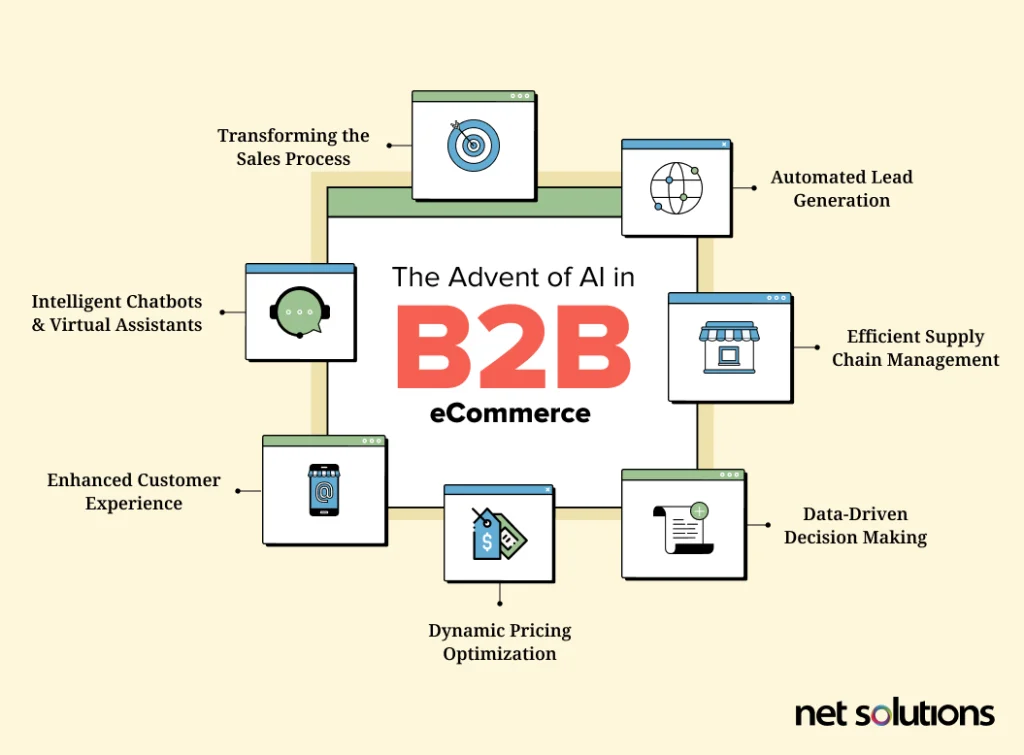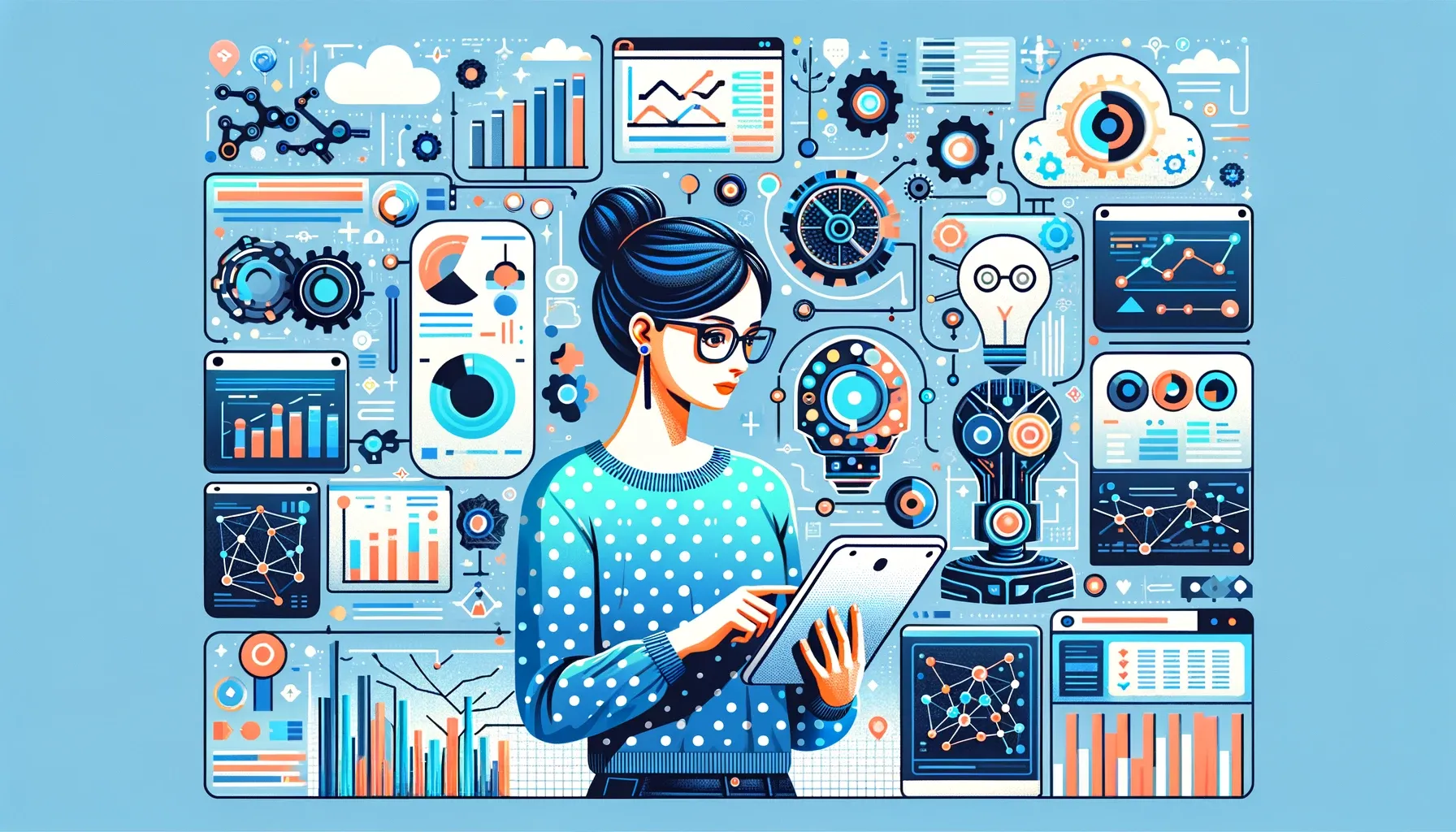The Future of B2B: Taking Advantage Of AI Automation to Drive Success
The landscape of B2B is changing as companies increasingly transform to AI automation for critical advantage. This change assures to enhance performance and client interaction via innovative technologies. Nonetheless, the integration of these devices is not without its difficulties. Understanding exactly how companies can browse this advancing surface will be important for future success. What factors will figure out the performance of AI in this industry? The answers may redefine standard company designs.
Understanding AI Automation in B2B
As organizations progressively look for efficiency, comprehending AI automation in B2B comes to be important. AI automation describes making use of expert system technologies to enhance and simplify company procedures. In the B2B industry, this entails the integration of AI tools to manage tasks such as information analysis, client communications, and supply chain operations. By leveraging artificial intelligence and all-natural language processing, business can enhance precision, reduce human mistake, and quicken decision-making (Minarik AI). Additionally, AI automation helps with the handling of large quantities of data, enabling services to draw out valuable understandings and maximize their operations. As organizations browse this technical landscape, a complete understanding of AI automation's capacities will certainly encourage them to stay receptive and competitive to market demands
Trick Benefits of AI Automation for Organizations
While several services come to grips with increasing operational demands, AI automation provides various advantages that can markedly enhance their performance. One substantial benefit is performance; AI systems can perform repetitive tasks quicker and with better precision than humans, thereby freeing and minimizing mistakes up staff members for more calculated efforts. Additionally, AI automation enables data-driven decision-making by analyzing huge datasets quickly, supplying insights that educate company strategies. Expense decrease is an additional crucial advantage, as automation reduces labor prices and enhances source allotment. AI can boost scalability, enabling organizations to adjust to market modifications swiftly. Inevitably, the assimilation of AI automation promotes development, making it possible for firms to stay competitive in a quickly advancing landscape.
Transforming Customer Experiences With AI
AI is reshaping consumer experiences by enhancing and making it possible for individualized interactions engagement. Via the application of predictive analytics, companies can anticipate consumer requirements and choices, causing a lot more customized solutions. Furthermore, enhancing assistance procedures with AI technology boosts efficiency and contentment, ultimately transforming the general customer journey.
Customized Interactions and Engagement
Personalized interactions have actually come to be a keystone of reliable client engagement in the B2B landscape. By leveraging AI-driven services, organizations can customize their communication and offerings to satisfy the unique needs of each customer. Automated systems evaluate customer actions, preferences, and information, enabling companies to develop customized experiences that reverberate with their audience. This degree of personalization not just boosts customer fulfillment yet also cultivates long-term commitment. Furthermore, AI devices promote real-time communications, enabling services to react immediately and successfully to queries and comments. Because of this, business can develop stronger relationships with customers, ensuring that their solutions straighten with progressing expectations. Ultimately, personalized involvement through AI leads to boosted end results and sustained success in the competitive B2B market.
Anticipating Analytics Application
As companies significantly seek to improve consumer experiences, carrying out anticipating analytics has actually become a critical approach in the B2B sector. By leveraging data-driven insights, organizations can prepare for client demands and choices, allowing them to customize their offerings better. Predictive analytics makes use of historical information and advanced formulas to forecast future actions, permitting organizations to determine potential challenges and opportunities. This aggressive strategy not only improves customer fulfillment however likewise promotes loyalty by providing prompt and appropriate options. Additionally, anticipating analytics aids in source allotment, making certain that marketing initiatives are focused on high-value prospects. Eventually, the assimilation of anticipating analytics outfits B2B companies with the devices necessary to change consumer communications and drive lasting success in a significantly competitive landscape.
Streamlining Support Procedures
Enhancing customer experiences in the B2B sector expands past anticipating analytics; enhancing support processes plays a vital role. By integrating AI-driven remedies, services can boost and automate regular inquiries feedback times, bring about enhanced consumer contentment. Chatbots and virtual aides supply 24/7 support, addressing client needs without delay and minimizing the worry on human representatives. This automation enables teams to concentrate on complex issues, fostering even more purposeful communications. AI tools can assess support information to identify patterns and areas for improvement, ensuring continuous improvement of service high quality. As organizations embrace these innovations, they place themselves as customer-centric and receptive, ultimately driving commitment and business growth in an increasingly affordable landscape.
Improving Operations and Processes
Improving procedures and procedures in B2B atmospheres is crucial for enhancing overall efficiency. By maximizing process effectiveness and automating regular jobs, organizations can minimize hands-on mistakes and free up useful resources. This change not only improves productivity yet likewise allows teams to concentrate on critical try this out initiatives that drive development.
Maximizing Process Effectiveness
Enhancing process effectiveness is essential for companies looking for to decrease functional prices and boost performance. By analyzing existing procedures, companies can identify traffic jams and redundancies that impede efficiency. Executing structured treatments improves interaction and collaboration among groups, making certain that jobs are finished extra quickly. Using data-driven understandings enables companies to make enlightened decisions that fine-tune operations even more. In addition, embracing incorporated modern technologies can help with seamless details flow, reducing the threat of errors and delays. As businesses embrace these changes, they not only foster a much more nimble workplace however likewise position themselves to react promptly to market needs - Growth Systems For B2B. Eventually, concentrating on process efficiency allows companies to assign resources successfully, driving long-lasting success in a progressively competitive landscape
Automating Routine Tasks
Many organizations are significantly transforming to automation to handle regular tasks, acknowledging its possible to substantially enhance functional efficiency. By releasing AI-driven solutions, companies can simplify recurring tasks such as data access, invoice processing, and consumer questions. This shift not just decreases human mistake yet additionally maximizes useful employee time, enabling personnel to concentrate on calculated initiatives and value-added tasks. Additionally, automation can improve action times and solution consistency, causing boosted client satisfaction. As companies navigate an affordable landscape, leveraging automation for routine jobs becomes important for optimizing operations and preserving agility. Eventually, this approach fosters technology and drives development, placing organizations for long-term success in the evolving B2B atmosphere.
Enhancing Decision-Making Through Information Insights

Getting Over Challenges in AI Application
Although AI execution holds the assurance of significant functional renovations, organizations typically encounter a myriad of obstacles that can hinder progress. Secret challenges consist of information top quality concerns, as several ventures battle with insufficient or irregular datasets needed for efficient AI training. Furthermore, resistance to alter within the workforce can hinder the adoption of AI technologies, as employees may fear work variation or do not have the needed skills. Budget plan constraints also offer an obstacle, restricting investment in the required infrastructure and ability. Integrating AI systems with existing procedures can be intricate, demanding significant time and sources. Getting over these difficulties requires a strategic strategy that consists of complete training, modification management, and a commitment to continual improvement in AI campaigns.
Future Trends: The Following Frontier in B2B Automation
While the landscape of B2B automation proceeds to develop, arising patterns are positioned to redefine exactly how organizations run. The integration of innovative expert system will certainly help with extra individualized customer experiences, permitting companies to customize options specifically to client demands. The surge of predictive analytics will certainly allow companies to anticipate market changes and optimize decision-making processes. Automation of regular jobs with robot procedure automation (RPA) will improve performance, decreasing functional costs significantly. In addition, the adoption of blockchain innovation assures improved transparency and protection in transactions. As these advancements gain grip, companies will increasingly take advantage of AI-driven understandings to cultivate collaboration, improve supply chains, and improve total performance, noting a transformative shift in the B2B landscape.
Frequently Asked Concerns
What Kinds Of Organizations Can Profit Most From AI Automation?
Manufacturing, logistics, and customer service companies can profit most from AI automation. These markets boost functional performance, reduce costs, and improve customer interactions, ultimately causing raised productivity and profitability in an open market.
How Can Small Companies Execute AI Automation Efficiently?
Small companies can execute AI automation efficiently by determining repetitive tasks, picking user-friendly devices, making certain ample training for staff members, and slowly integrating services to optimize operations while monitoring efficiency and changing techniques based on responses.
What Prevail Misconceptions Concerning AI in B2B?
Usual mistaken beliefs regarding AI in B2B include the idea that it is only for large ventures, that it ensures instant outcomes, which it can fully replace human decision-making rather than boosting it. Growth Systems For B2B.
How Does AI Automation Effect Worker Duties and Job Protection?
AI automation improves employee duties by simplifying recurring tasks, cultivating effectiveness and innovation. While some anxiety task loss, it often develops opportunities for upskilling and brand-new positions, inevitably enhancing work safety and security via added worth and productivity.
What Abilities Are Needed to Handle AI Automation Projects?

As businesses progressively look for efficiency, comprehending AI automation in B2B comes to be vital. AI automation promotes the handling of large volumes of information, enabling companies to draw out beneficial insights and enhance their procedures. While several companies grapple with enhancing functional needs, AI automation offers numerous benefits that can noticeably boost their performance. Automation of routine tasks through robotic procedure automation (RPA) will certainly boost performance, reducing operational expenses significantly. Production, logistics, and consumer solution organizations can profit most from AI automation.